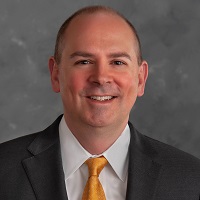My Professional Advice: When It Comes to Money, You Do You
This is how embracing the 'letting others be' and 'learning to surrender' mindsets can improve your relationship with money.


Profit and prosper with the best of Kiplinger's advice on investing, taxes, retirement, personal finance and much more. Delivered daily. Enter your email in the box and click Sign Me Up.
You are now subscribed
Your newsletter sign-up was successful
Want to add more newsletters?

Delivered daily
Kiplinger Today
Profit and prosper with the best of Kiplinger's advice on investing, taxes, retirement, personal finance and much more delivered daily. Smart money moves start here.

Sent five days a week
Kiplinger A Step Ahead
Get practical help to make better financial decisions in your everyday life, from spending to savings on top deals.

Delivered daily
Kiplinger Closing Bell
Get today's biggest financial and investing headlines delivered to your inbox every day the U.S. stock market is open.

Sent twice a week
Kiplinger Adviser Intel
Financial pros across the country share best practices and fresh tactics to preserve and grow your wealth.

Delivered weekly
Kiplinger Tax Tips
Trim your federal and state tax bills with practical tax-planning and tax-cutting strategies.

Sent twice a week
Kiplinger Retirement Tips
Your twice-a-week guide to planning and enjoying a financially secure and richly rewarding retirement

Sent bimonthly.
Kiplinger Adviser Angle
Insights for advisers, wealth managers and other financial professionals.

Sent twice a week
Kiplinger Investing Weekly
Your twice-a-week roundup of promising stocks, funds, companies and industries you should consider, ones you should avoid, and why.

Sent weekly for six weeks
Kiplinger Invest for Retirement
Your step-by-step six-part series on how to invest for retirement, from devising a successful strategy to exactly which investments to choose.
There’s a moment in almost every financial planning relationship when something from the outside creeps in. A friend brags about a hot stock. A sibling talks up their investment property. A headline warns about a market collapse.
Suddenly, a client starts to wonder if they’re doing enough. If they’re missing out. If someone else’s plan might be better.
That’s when I remind them of something simple, drawn from an idea Mel Robbins popularized: Let them. Let your brother chase yield. Let your coworker time the market. Let the news cycle do what it does.
From just $107.88 $24.99 for Kiplinger Personal Finance
Become a smarter, better informed investor. Subscribe from just $107.88 $24.99, plus get up to 4 Special Issues

Sign up for Kiplinger’s Free Newsletters
Profit and prosper with the best of expert advice on investing, taxes, retirement, personal finance and more - straight to your e-mail.
Profit and prosper with the best of expert advice - straight to your e-mail.
But don’t let other people’s choices distract you from your own.
The Kiplinger Building Wealth program handpicks financial advisers and business owners from around the world to share retirement, estate planning and tax strategies to preserve and grow your wealth. These experts, who never pay for inclusion on the site, include professional wealth managers, fiduciary financial planners, CPAs and lawyers. Most of them have certifications including CFP®, ChFC®, IAR, AIF®, CDFA® and more, and their stellar records can be checked through the SEC or FINRA.
This mindset can be incredibly helpful for clients dealing with financial anxiety. When we pair it with another powerful idea — the practice of letting go of what we can’t control — we help clients make better decisions and, more important, find a greater sense of peace around their money.
Let others do their thing
Comparison is everywhere. I’ve seen people who have carefully built their financial life suddenly lose confidence because of what someone else is doing. It could be a neighbor, a friend, even a headline.
But the truth is, what works for one person might be a complete mismatch for another.
Let’s look at a simple example: Two neighbors are the same age, have the same income and have a similar family makeup, but their values and priorities are entirely different. What feels like success for one may not work for the other.
We built this into our planning process with the Experience Index™ questionnaire because personal finance should always be personal.
Letting others do what they’re going to do helps clients return to what really matters: their own progress. Instead of asking, “Why don’t I have what they have?” we shift to “Look how far I’ve come.”
Measuring backward is a powerful way to see one's growth and success.
Focus inward
Once you stop looking sideways, you can start asking better questions.
- What do I need?
- What do I want?
This is the other side of the “let them” mindset — creating space for better self-awareness.
I’ve worked with clients who have more than enough by most standards, but what brings them peace isn’t the size of their portfolio — it’s knowing that their spending aligns with their goals, that they’re living intentionally and that their plan reflects what matters most to them.
It’s not always about having more. Often, it’s about being grateful for what you already have. Gratitude helps shift the mindset from fear and scarcity to confidence and clarity.
Let go of what you can't control
Another philosophy that resonates with me is found in Michael Singer's The Surrender Experiment. His story is about learning to let go.
While I naturally gravitate toward structure and strategy, blending that mindset with a willingness to surrender where needed can be powerful. It’s a reminder that confidence doesn’t always come from having every answer but from knowing you’ve done the work and built a strong foundation with the right support.
Looking for expert tips to grow and preserve your wealth? Sign up for Building Wealth, our free, twice-weekly newsletter.
In financial planning, we still prepare. One of the first things we do with a client is acknowledge that things won’t go perfectly. Markets will dip. Life will throw curveballs. The plan isn’t meant to be rigid — it’s there to guide us through uncertainty.
The key is to focus on what we can control — our decisions, habits and reactions. That’s what turns anxiety into action.
Choosing peace
When people embrace letting others be and letting go of control, they move differently. They make decisions more calmly, stop chasing and trust the work they’ve done.
These philosophies come with a sense of freedom, whether traveling the world or enjoying a quiet retirement at home.
That kind of peace doesn’t come from a spreadsheet. It comes from knowing you’ve done the work, stayed true to yourself and tuned out the noise.
There’s a quote from the 1994 movie The Shawshank Redemption I love: “Hope is a good thing, maybe the best of things, and no good thing ever dies.”
That’s what I want for the people I work with: a life where they feel hopeful, not hurried. Clear, not confused. Steady, not scattered.
Let them. Let go. And live the life that’s right for you.
Signature Estate & Investment Advisors, LLC (SEIA) is an SEC-registered investment adviser; however, such registration does not imply a certain level of skill or training and no inference to the contrary should be made. This material is for informational purposes only and is not intended as individual investment advice or as a recommendation of any particular security, strategy or investment product. Investment decisions should be made based on the client’s specific financial needs, objectives, goals, time horizon and risk tolerance. Financial markets are inherently volatile and all investment strategies, including those perceived as low-risk, carry some level of investment risk. Past performance does not guarantee future results. Financial success is influenced by various factors, including the client's investment objectives, risk tolerance, time horizon, and market conditions. There is no guarantee that any investment strategy will achieve its intended results. All investments carry inherent risks, including the potential loss of principal. Prospective and current advisors and clients should carefully consider their investment objectives, risks, charges, and expenses before making any investment. SEIA is not responsible for the consequences of any decisions or actions taken as a result of the information provided herein. In particular, none of the examples should be considered advice tailored to the needs of any specific investor. Securities offered through Signature Estate Securities, LLC member FINRA/SIPC. Investment advisory services offered through SEIA, 2121 Avenue of the Stars, Suite 1600, Los Angeles, CA 90067, (310) 712-2323.
Related Content
- Comparison vs Purpose in Financial Planning: Forget the Joneses
- The Best ROI? Investing in Yourself This Year
- Wealth Is More Than Just Your Money: How to Manage It All
- Women, What Is Your Net Worth?
- Can’t Afford It? There’s No Shame in Saying So
Profit and prosper with the best of Kiplinger's advice on investing, taxes, retirement, personal finance and much more. Delivered daily. Enter your email in the box and click Sign Me Up.

Frank Legan is a Cleveland-based author and a Financial Adviser with SEIA. Frank spends his days designing and implementing personalized financial planning strategies for corporate executives, business owners, artists, families and retirees. He focuses on lifetime income planning strategies, investment advice and estate planning services. He also works with businesses to develop strategic and succession planning strategies.
-
 Quiz: Do You Know How to Maximize Your Social Security Check?
Quiz: Do You Know How to Maximize Your Social Security Check?Quiz Test your knowledge of Social Security delayed retirement credits with our quick quiz.
-
 Will You Get a Trump Tariff Refund in 2026? What to Know Now
Will You Get a Trump Tariff Refund in 2026? What to Know NowTax Law The Supreme Court's tariff ruling has many wondering about refund rights and how tariff refunds would work.
-
 2026 Tax Refund Delays: 5 States Where Your Money Is Stuck
2026 Tax Refund Delays: 5 States Where Your Money Is StuckState Tax From New York to Oregon, your state income tax refund could be delayed for weeks. Here's what to know.
-
 Where Olympians Store Their Medals is a Great Lesson For Your Valuables and Cash
Where Olympians Store Their Medals is a Great Lesson For Your Valuables and CashWhat you can learn about protecting your cash and values from where Olympians store their medals.
-
 It's Time to Bust These 3 Long-Term Care Myths (and Face Some Uncomfortable Truths)
It's Time to Bust These 3 Long-Term Care Myths (and Face Some Uncomfortable Truths)None of us wants to think we'll need long-term care when we get older, but the odds are roughly even that we will. Which is all the more reason to understand the realities of LTC and how to pay for it.
-
 Fix Your Mix: How to Derisk Your Portfolio Before Retirement
Fix Your Mix: How to Derisk Your Portfolio Before RetirementIn the run-up to retirement, your asset allocation needs to match your risk tolerance without eliminating potential for growth. Here's how to find the right mix.
-
 An Executive's 'Idiotic' Idea: Skip Safety Class and Commit a Federal Crime
An Executive's 'Idiotic' Idea: Skip Safety Class and Commit a Federal CrimeSeveral medical professionals reached out to say that one of their bosses suggested committing a crime to fulfill OSHA requirements. What's an employee to do?
-
 Dow Loses 821 Points to Open Nvidia Week: Stock Market Today
Dow Loses 821 Points to Open Nvidia Week: Stock Market TodayU.S. stock market indexes reflect global uncertainty about artificial intelligence and Trump administration trade policy.
-
 Nvidia Earnings: Live Updates and Commentary February 2026
Nvidia Earnings: Live Updates and Commentary February 2026Nvidia's earnings event is just one day away and Wall Street's attention is zeroed in on the AI bellwether's fourth-quarter results.
-
 I Thought My Retirement Was Set — Until I Answered These 3 Questions
I Thought My Retirement Was Set — Until I Answered These 3 QuestionsI'm a retirement writer. Three deceptively simple questions helped me focus my retirement and life priorities.
-
 How You Can Use the Financial Resource Built Into Your Home to Help With Your Long-Term Goals
How You Can Use the Financial Resource Built Into Your Home to Help With Your Long-Term GoalsHomeowners are increasingly using their home equity, through products like HELOCs and home equity loans, as a financial resource for managing debt, funding renovations and more.